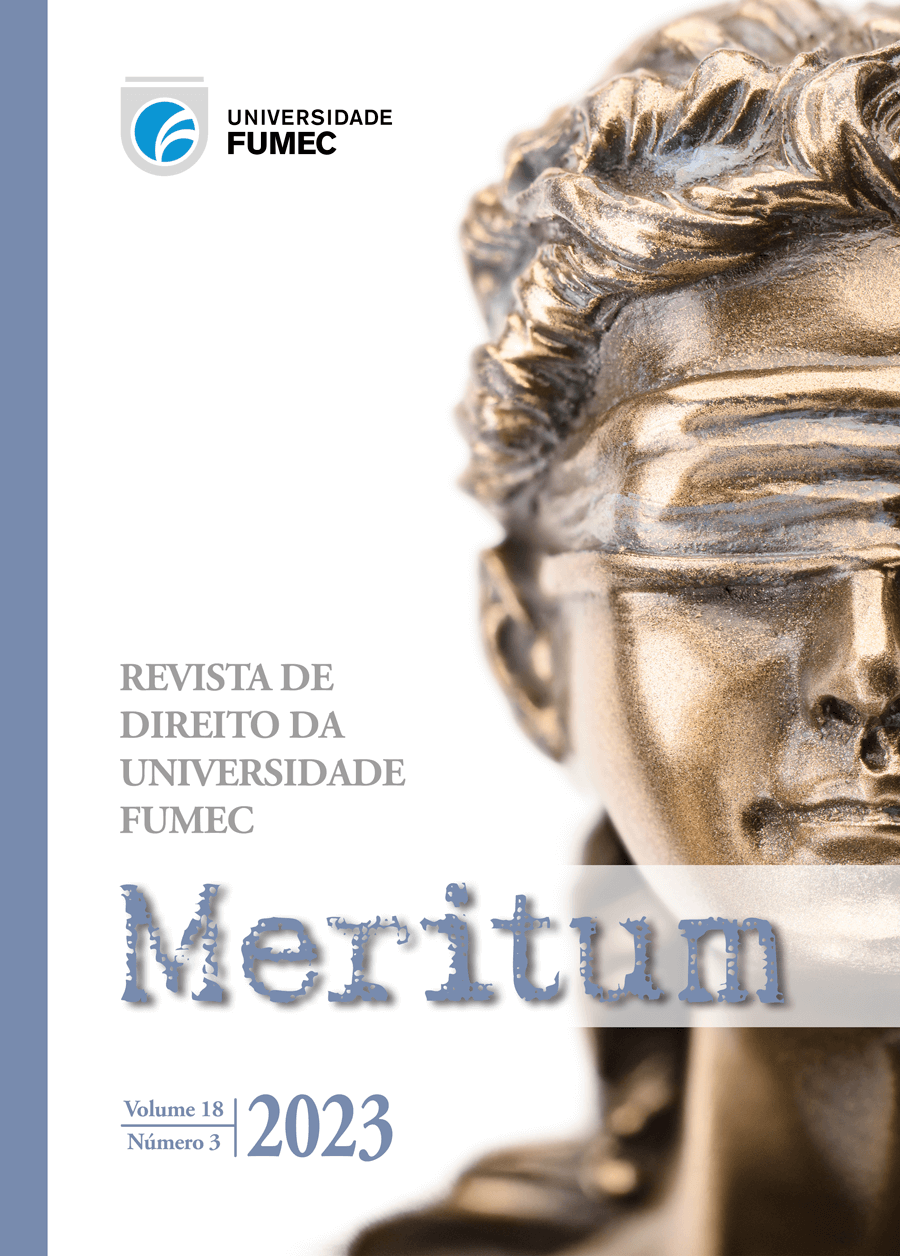MUNICIPAL ELECTIONS IN THE NORTH OF MINAS:
between the facticity of the ineffectiveness of the gender quota and the deficit of legitimacy of the female political underrepresentation
DOI:
https://doi.org/10.46560/meritum.v18i3.9258Abstract
This research aims to estimate the efficiency of the application of the gender quotas in the municipal elections as an instrument for female representativeness in the city halls. The study was focused in the central region of the north of Minas and this study’s approach is hypothetical-deductive. The hypothesis is that the gender quota fulfilment in the municipal elections, occurred in the period of 1996 and 2020, acted as an independent variable and there were no necessary correlation with the number of female councillor elected. The research was conducted with the hypothesis testing by means of bibliographical and documental research, as well as a survey of the number of male and female candidacies recorded in the municipal elections of the North of Minas. The gender quota fulfilment was verified and confronted with the number of male and female councillors elected in the analysed period. The interest of this research concentrates in a little explored issue by the studies in the north of Minas, whatsoever is the legitimacy of the local legislative-political processes. The results indicate the necessity to discuss the gender quota’s role in the elections, its limitations and the necessity to advance, in order to men and women, equally, become more than electors or candidates, and become truly protagonists of the democratic process.
Downloads
Published
Issue
Section
License
Autores que publicam nesta revista concordam com os seguintes termos:
- Autores mantém os direitos autorais e concedem à revista o direito de primeira publicação, com o trabalho simultaneamente licenciado sob a Licença Creative Commons Attribution que permite o compartilhamento do trabalho com reconhecimento da autoria e publicação inicial nesta revista;
- Autores têm autorização para assumir contratos adicionais separadamente, para distribuição não-exclusiva da versão do trabalho publicada nesta revista (ex.: publicar em repositório institucional ou como capítulo de livro), com reconhecimento de autoria e publicação inicial nesta revista;
- Autores têm permissão e são estimulados a publicar e distribuir seu trabalho online (ex.: em repositórios institucionais ou na sua página pessoal) a qualquer ponto antes ou durante o processo editorial, já que isso pode gerar alterações produtivas, bem como aumentar o impacto e a citação do trabalho publicado (Veja O Efeito do Acesso Livre).






